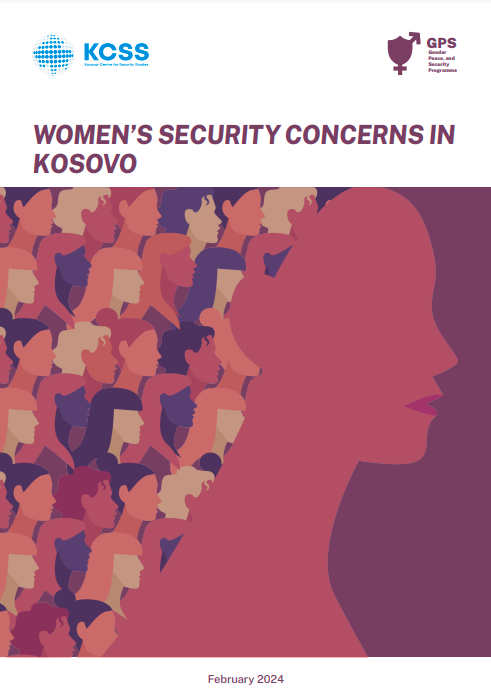4/03/2024

Kosovar Center for Security Studies
Kosovar Center for Security Studies
Adelina Hasani, Vesa Kroçi
Gender-based violence poses a substantial security threat to women and girls in Kosovo, as evidenced by a rising number of gender-based violence and murders of women in recent years. Despite a noticeable increase in reported domestic violence cases over recent years in Kosovo, un-reported cases of gender-based violence remain high due to complex socioeconomic factors that contribute to this phenomenon.
Women’s trust in security and justice institutions is critical for reporting gender-based violence. However, the leniency of the judicial system towards perpetrators and the prolonged duration of domestic violence cases discourage women from seeking justice. There is a lack of sensitivity and expertise among law enforcement authorities, especially in rural areas, to handle gender-based violence cases effectively.
The absence of property ownership among women is a significant barrier to their economic independence and security. Despite legal provisions for equal property rights, women often relinquish their inheritance, leaving them with limited resources and options when facing violence. This lack of financial autonomy leaves women in a troubling situation where they may feel compelled to return to their abusers.
Many women withdraw their complaints of gender-based violence due to third-party interventions, often under family pressure. There is a tendency among family members and officials to blame women for reporting abuse, further discouraging them from seeking help. Women reporting domestic violence often endure double discrimination from institutions, society, and their families.
There is limited information about rights and available support services for victims of genderbased violence in Kosovo. The lack of awareness intensifies feelings of vulnerability and exacerbates the sense of helplessness when seeking solutions. There is also insufficient investment in support services for victims and consequences for perpetrators.
Insufficient and unstable funding for shelters poses a significant challenge to supporting survivors of domestic violence. Without adequate resources, shelters struggle to maintain essential services and meet the increasing demand for their services. There is also a lack of sustainable institutional support for victims, leading some to return to their abusers.